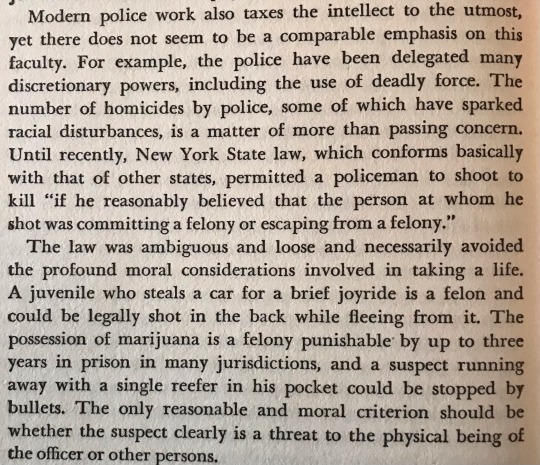#cops
Text


#Free palestine#news#columbia#blm#texas#guns#democrats#republicans#gaza#palestine#ut austin#gop#Cops
1K notes
·
View notes
Text
50 notes
·
View notes
Text





I have uploaded others images on YouTube So don't forget to watch it and SUBSCRIBE me on YouTube
#vidartist23#tensorart#artists on tumblr#ai artist#ai art gallery#hot cops#cops#police#ai art#ai artwork#ai girl#ai image#ai generated#sexy breast#sexy chick#sexy content#perfect breast#perfect butt#curvy body#great body#amazing body#beautiful body#big breats#great breasts#big round butt#great butt#girl butts#sexy titts#ai sexy#ai babe
35 notes
·
View notes
Text
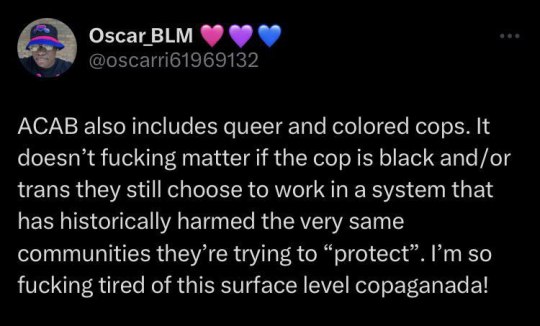
Minority cops are still cops
#Minority cops are still cops#minorities#minority#minority cops#defund the cops#cops#all cops are bad#all cops are bastards#anti cop#anti police#police state#police#cop#antiauthoritarian#antinazi#anti capitalism#ausgov#politas#auspol#tasgov#taspol#australia#fuck neoliberals#neoliberal capitalism#anthony albanese#albanese government#anticop#fuck the police#fuck the cops#fuck the confederacy
33 notes
·
View notes
Text
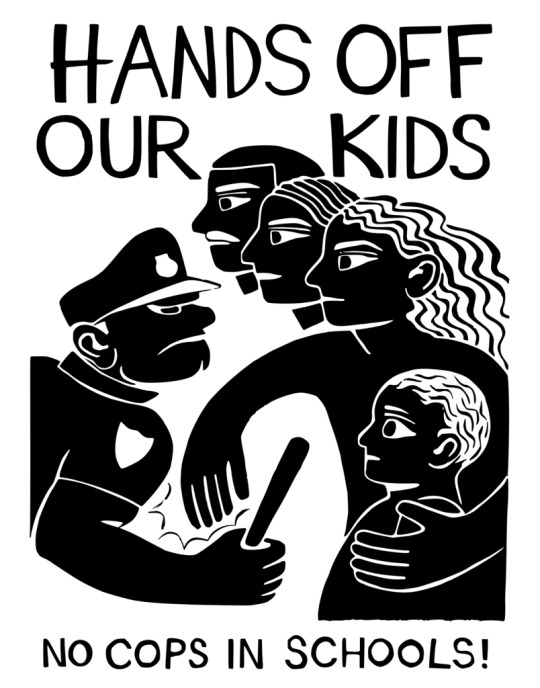
Stand with students, stand with Palestine❤️🇵🇸
(Not OC)
#gaza#marxism#palestine#socialism#communism#history#politics#west bank#genocide#student#protest#boycott israel#strike for gaza#anarchism#anarchocommunism#Solidarity#south africa#current events#acab1312#cops#gaza solidarity encampment#youth#queers for palestine#lgbtq#socialist revolution#peace#news#art#poster#awareness
53 notes
·
View notes
Text

Once again, I'm trying to style my art to look like vintage comics
#fan art#artists on tumblr#art#fanart#digital art#artist#payday the heist#payday 2#payday#payday hoxton#hoxton#busted#mask#masking#robbery#cops#cop#police#vintage style#vintage comics#vintage aesthetic#vintage#comics art#comics style#SoundCloud
27 notes
·
View notes
Text
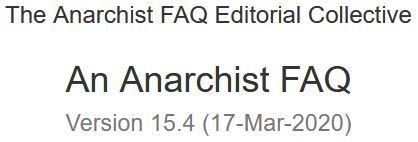
A.2.8 Is it possible to be an anarchist without opposing hierarchy?
No. We have seen that anarchists abhor authoritarianism. But if one is an anti-authoritarian, one must oppose all hierarchical institutions, since they embody the principle of authority. For, as Emma Goldman argued, “it is not only government in the sense of the state which is destructive of every individual value and quality. It is the whole complex authority and institutional domination which strangles life. It is the superstition, myth, pretence, evasions, and subservience which support authority and institutional domination.” [Red Emma Speaks, p. 435] This means that “there is and will always be a need to discover and overcome structures of hierarchy, authority and domination and constraints on freedom: slavery, wage-slavery [i.e. capitalism], racism, sexism, authoritarian schools, etc.” [Noam Chomsky, Language and Politics, p. 364]
Thus the consistent anarchist must oppose hierarchical relationships as well as the state. Whether economic, social or political, to be an anarchist means to oppose hierarchy. The argument for this (if anybody needs one) is as follows:
“All authoritarian institutions are organised as pyramids: the state, the private or public corporation, the army, the police, the church, the university, the hospital: they are all pyramidal structures with a small group of decision-makers at the top and a broad base of people whose decisions are made for them at the bottom. Anarchism does not demand the changing of labels on the layers, it doesn’t want different people on top, it wants us to clamber out from underneath.” [Colin Ward, Anarchy in Action, p. 22]
Hierarchies “share a common feature: they are organised systems of command and obedience” and so anarchists seek “to eliminate hierarchy per se, not simply replace one form of hierarchy with another.” [Bookchin, The Ecology of Freedom, p. 27] A hierarchy is a pyramidally-structured organisation composed of a series of grades, ranks, or offices of increasing power, prestige, and (usually) remuneration. Scholars who have investigated the hierarchical form have found that the two primary principles it embodies are domination and exploitation. For example, in his classic article “What Do Bosses Do?” (Review of Radical Political Economy, Vol. 6, No. 2), a study of the modern factory, Steven Marglin found that the main function of the corporate hierarchy is not greater productive efficiency (as capitalists claim), but greater control over workers, the purpose of such control being more effective exploitation.
Control in a hierarchy is maintained by coercion, that is, by the threat of negative sanctions of one kind or another: physical, economic, psychological, social, etc. Such control, including the repression of dissent and rebellion, therefore necessitates centralisation: a set of power relations in which the greatest control is exercised by the few at the top (particularly the head of the organisation), while those in the middle ranks have much less control and the many at the bottom have virtually none.
Since domination, coercion, and centralisation are essential features of authoritarianism, and as those features are embodied in hierarchies, all hierarchical institutions are authoritarian. Moreover, for anarchists, any organisation marked by hierarchy, centralism and authoritarianism is state-like, or “statist.” And as anarchists oppose both the state and authoritarian relations, anyone who does not seek to dismantle all forms of hierarchy cannot be called an anarchist. This applies to capitalist firms. As Noam Chomsky points out, the structure of the capitalist firm is extremely hierarchical, indeed fascist, in nature:
“a fascist system… [is] absolutist — power goes from top down … the ideal state is top down control with the public essentially following orders.
“Let’s take a look at a corporation… [I]f you look at what they are, power goes strictly top down, from the board of directors to managers to lower managers to ultimately the people on the shop floor, typing messages, and so on. There’s no flow of power or planning from the bottom up. People can disrupt and make suggestions, but the same is true of a slave society. The structure of power is linear, from the top down.” [Keeping the Rabble in Line, p. 237]
David Deleon indicates these similarities between the company and the state well when he writes:
“Most factories are like military dictatorships. Those at the bottom are privates, the supervisors are sergeants, and on up through the hierarchy. The organisation can dictate everything from our clothing and hair style to how we spend a large portion of our lives, during work. It can compel overtime; it can require us to see a company doctor if we have a medical complaint; it can forbid us free time to engage in political activity; it can suppress freedom of speech, press and assembly — it can use ID cards and armed security police, along with closed-circuit TVs to watch us; it can punish dissenters with ‘disciplinary layoffs’ (as GM calls them), or it can fire us. We are forced, by circumstances, to accept much of this, or join the millions of unemployed… In almost every job, we have only the ‘right’ to quit. Major decisions are made at the top and we are expected to obey, whether we work in an ivory tower or a mine shaft.” [“For Democracy Where We Work: A rationale for social self-management”, Reinventing Anarchy, Again, Howard J. Ehrlich (ed.), pp. 193–4]
Thus the consistent anarchist must oppose hierarchy in all its forms, including the capitalist firm. Not to do so is to support archy — which an anarchist, by definition, cannot do. In other words, for anarchists, ”[p]romises to obey, contracts of (wage) slavery, agreements requiring the acceptance of a subordinate status, are all illegitimate because they do restrict and restrain individual autonomy.” [Robert Graham, “The Anarchist Contract, Reinventing Anarchy, Again, Howard J. Ehrlich (ed.), p. 77] Hierarchy, therefore, is against the basic principles which drive anarchism. It denies what makes us human and “divest[s] the personality of its most integral traits; it denies the very notion that the individual is competent to deal not only with the management of his or her personal life but with its most important context: the social context.” [Murray Bookchin, Op. Cit., p. 202]
Some argue that as long as an association is voluntary, whether it has a hierarchical structure is irrelevant. Anarchists disagree. This is for two reasons. Firstly, under capitalism workers are driven by economic necessity to sell their labour (and so liberty) to those who own the means of life. This process re-enforces the economic conditions workers face by creating “massive disparities in wealth … [as] workers… sell their labour to the capitalist at a price which does not reflect its real value.” Therefore:
“To portray the parties to an employment contract, for example, as free and equal to each other is to ignore the serious inequality of bargaining power which exists between the worker and the employer. To then go on to portray the relationship of subordination and exploitation which naturally results as the epitome of freedom is to make a mockery of both individual liberty and social justice.” [Robert Graham, Op. Cit., p. 70]
It is for this reason that anarchists support collective action and organisation: it increases the bargaining power of working people and allows them to assert their autonomy (see section J).
Secondly, if we take the key element as being whether an association is voluntary or not we would have to argue that the current state system must be considered as “anarchy.” In a modern democracy no one forces an individual to live in a specific state. We are free to leave and go somewhere else. By ignoring the hierarchical nature of an association, you can end up supporting organisations based upon the denial of freedom (including capitalist companies, the armed forces, states even) all because they are “voluntary.” As Bob Black argues, ”[t]o demonise state authoritarianism while ignoring identical albeit contract-consecrated subservient arrangements in the large-scale corporations which control the world economy is fetishism at its worst.” [The Libertarian as Conservative, The Abolition of Work and other essays, p. 142] Anarchy is more than being free to pick a master.
Therefore opposition to hierarchy is a key anarchist position, otherwise you just become a “voluntary archist” — which is hardly anarchistic. For more on this see section A.2.14 ( Why is voluntarism not enough?).
Anarchists argue that organisations do not need to be hierarchical, they can be based upon co-operation between equals who manage their own affairs directly. In this way we can do without hierarchical structures (i.e. the delegation of power in the hands of a few). Only when an association is self-managed by its members can it be considered truly anarchistic.
We are sorry to belabour this point, but some capitalist apologists, apparently wanting to appropriate the “anarchist” name because of its association with freedom, have recently claimed that one can be both a capitalist and an anarchist at the same time (as in so-called “anarcho” capitalism). It should now be clear that since capitalism is based on hierarchy (not to mention statism and exploitation), “anarcho”-capitalism is a contradiction in terms. (For more on this, see Section F)
#faq#anarchy faq#revolution#anarchism#daily posts#communism#anti capitalist#anti capitalism#late stage capitalism#organization#grassroots#grass roots#anarchists#libraries#leftism#social issues#economy#economics#climate change#climate crisis#climate#ecology#anarchy works#environmentalism#environment#solarpunk#anti colonialism#mutual aid#cops#police
26 notes
·
View notes
Text

#fuck cops#all cops are bastards#police violence#fuck the police#abolish the police#cops#anti capitalism#leftism#communism#socialism#twitter post#anarchy#defund the cops#police#law enforcement#arrest#police brutality#killed#policing
30K notes
·
View notes
Text
do not discuss your disability or medical conditions or pregnancy with the police. do not tell them your diagnosis. do not let them in your hospital room without a warrant. never talk to the cops. I don’t care if you’re white or cis or middle class or think you have nothing to hide. never ever ever talk to the cops without a lawyer. they will use every detail about your conditions against you and worse
6K notes
·
View notes
Text



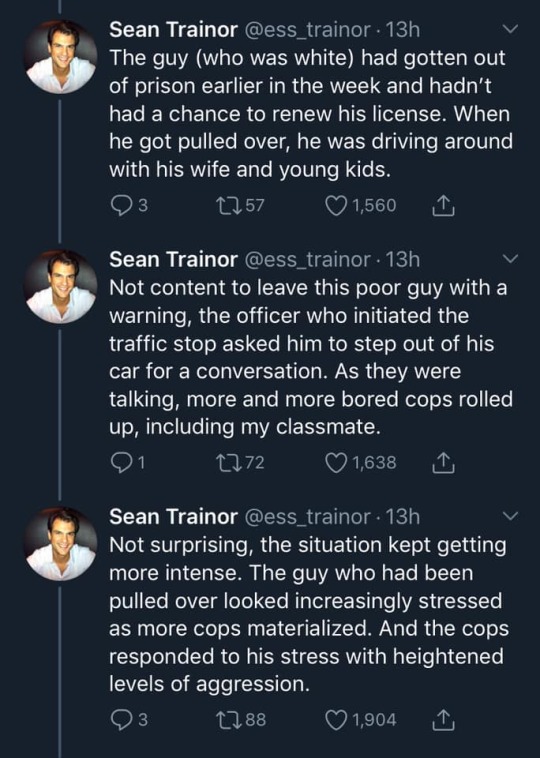


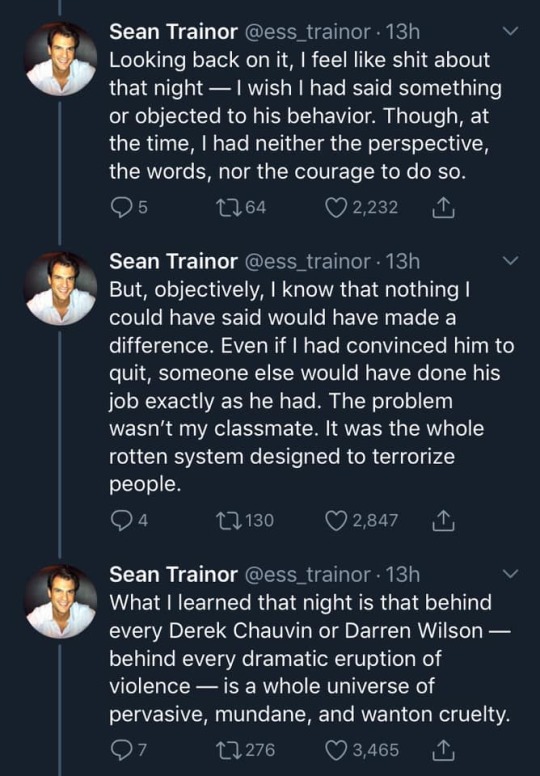

61K notes
·
View notes
Text

Quite the photo.
928 notes
·
View notes
Text
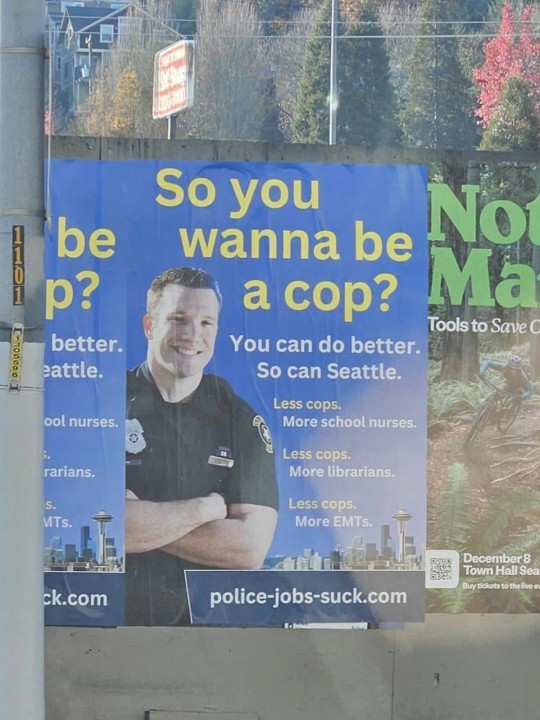
#anti cop#anti police#all cops are bastards#cops#fuck the police#police state#police#ausgov#politas#auspol#tasgov#taspol#australia#fuck neoliberals#neoliberal capitalism#anthony albanese#albanese government#nazisploitation#sacha baron cohen accuses tiktok of ‘biggest antisemitism movement since the nazis’#nazis#nazigate#nazi#antinazi#antinationalist#antiauthoritarian#antifascist#anti capitalism#antifaschistische aktion#class war#eat the rich
41K notes
·
View notes
Text
A Critique of the Western Left
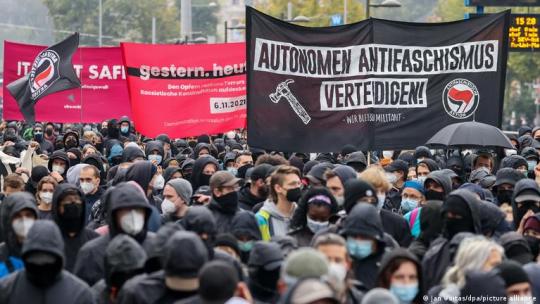
The Western Left has been marred by infighting in recent years, effectively crippling any capacity it has to fight back against the vicious capitalist system it rightfully opposes.
In my eyes, I see two main contributing factors to the general incompetency of the Left in the Western world. Infighting and ineffective campaigning.
Infighting between sects within the left along niche ideological lines stunts its ability to grow its membership and influence by making the movement look irrelevant, hostile, and elitist. The right isn't divided along small ideological lines. They can and will cooperate to spread their collective hateful ideologies. To combat this effectively, we need to put our differences aside and unite along our common enemy: the capitalist system. Only when the abolition of capitalism has been undertaken can we afford to disagree on minor policy and theoretical differences.
Secondly, Leftist campaigning is so focused on ideological niches that it no longer appeals to the working people. The average worker is not concerned about who Gonzalo was. They are too busy worrying about food, about rent, about utilities and education, and safety. We need to campaign issues that are affecting the people the most. We NEED to appeal to the masses and embrace left-wing populism to garner the popular support needed to oppose fascism if we want any chance of facilitating positive and lasting change.
We have a common enemy, and we must not fight each other. Instead, we must work together for the good of the people and for the good of the planet.
#anarchism#anarchocommunism#communism#cops#current events#gaza#gaza solidarity encampment#genocide#history#antifascism#antifascist#antifascismo#antifaschistische aktion#leftism#left wing#socialist revolution#columbia university#divestment#marxism#unity#palestinian liberation#black liberation#trans liberation#womens liberation#protest#ecosocialism#palestine#progressive politics#essay#blog
28 notes
·
View notes
Text

A.2.6 Why is solidarity important to anarchists?
Solidarity, or mutual aid, is a key idea of anarchism. It is the link between the individual and society, the means by which individuals can work together to meet their common interests in an environment that supports and nurtures both liberty and equality. For anarchists, mutual aid is a fundamental feature of human life, a source of both strength and happiness and a fundamental requirement for a fully human existence.
Erich Fromm, noted psychologist and socialist humanist, points out that the “human desire to experience union with others is rooted in the specific conditions of existence that characterise the human species and is one of the strongest motivations of human behaviour.” [To Be or To Have, p.107]
Therefore anarchists consider the desire to form “unions” (to use Max Stirner’s term) with other people to be a natural need. These unions, or associations, must be based on equality and individuality in order to be fully satisfying to those who join them — i.e. they must be organised in an anarchist manner, i.e. voluntary, decentralised, and non-hierarchical.
Solidarity — co-operation between individuals — is necessary for life and is far from a denial of liberty. Solidarity, observed Errico Malatesta, “is the only environment in which Man can express his personality and achieve his optimum development and enjoy the greatest possible wellbeing.” This “coming together of individuals for the wellbeing of all, and of all for the wellbeing of each,” results in “the freedom of each not being limited by, but complemented — indeed finding the necessary raison d’etre in — the freedom of others.” [Anarchy, p. 29] In other words, solidarity and co-operation means treating each other as equals, refusing to treat others as means to an end and creating relationships which support freedom for all rather than a few dominating the many. Emma Goldman reiterated this theme, noting “what wonderful results this unique force of man’s individuality has achieved when strengthened by co-operation with other individualities . .. co-operation — as opposed to internecine strife and struggle — has worked for the survival and evolution of the species… . only mutual aid and voluntary co-operation … can create the basis for a free individual and associational life.” [Red Emma Speaks, p. 118]
Solidarity means associating together as equals in order to satisfy our common interests and needs. Forms of association not based on solidarity (i.e. those based on inequality) will crush the individuality of those subjected to them. As Ret Marut points out, liberty needs solidarity, the recognition of common interests:
“The most noble, pure and true love of mankind is the love of oneself. I want to be free! I hope to be happy! I want to appreciate all the beauties of the world. But my freedom is secured only when all other people around me are free. I can only be happy when all other people around me are happy. I can only be joyful when all the people I see and meet look at the world with joy-filled eyes. And only then can I eat my fill with pure enjoyment when I have the secure knowledge that other people, too, can eat their fill as I do. And for that reason it is a question of my own contentment, only of my own self, when I rebel against every danger which threatens my freedom and my happiness…” [Ret Marut (a.k.a. B. Traven), The BrickBurner magazine quoted by Karl S. Guthke, B. Traven: The life behind the legends, pp. 133–4]
To practice solidarity means that we recognise, as in the slogan of Industrial Workers of the World, that “an injury to one is an injury to all.” Solidarity, therefore, is the means to protect individuality and liberty and so is an expression of self-interest. As Alfie Kohn points out:
“when we think about co-operation… we tend to associate the concept with fuzzy-minded idealism… This may result from confusing co-operation with altruism… Structural co-operation defies the usual egoism/altruism dichotomy. It sets things up so that by helping you I am helping myself at the same time. Even if my motive initially may have been selfish, our fates now are linked. We sink or swim together. Co-operation is a shrewd and highly successful strategy — a pragmatic choice that gets things done at work and at school even more effectively than competition does… There is also good evidence that co-operation is more conductive to psychological health and to liking one another.” [No Contest: The Case Against Competition, p. 7]
And, within a hierarchical society, solidarity is important not only because of the satisfaction it gives us, but also because it is necessary to resist those in power. Malatesta’s words are relevant here:
“the oppressed masses who have never completely resigned themselves to oppress and poverty, and who … show themselves thirsting for justice, freedom and wellbeing, are beginning to understand that they will not be able to achieve their emancipation except by union and solidarity with all the oppressed, with the exploited everywhere in the world.” [Anarchy, p. 33]
By standing together, we can increase our strength and get what we want. Eventually, by organising into groups, we can start to manage our own collective affairs together and so replace the boss once and for all. ”Unions will… multiply the individual’s means and secure his assailed property.” [Max Stirner, The Ego and Its Own, p. 258] By acting in solidarity, we can also replace the current system with one more to our liking: “in union there is strength.” [Alexander Berkman, What is Anarchism?, p. 74]
Solidarity is thus the means by which we can obtain and ensure our own freedom. We agree to work together so that we will not have to work for another. By agreeing to share with each other we increase our options so that we may enjoy more, not less. Mutual aid is in my self-interest — that is, I see that it is to my advantage to reach agreements with others based on mutual respect and social equality; for if I dominate someone, this means that the conditions exist which allow domination, and so in all probability I too will be dominated in turn.
As Max Stirner saw, solidarity is the means by which we ensure that our liberty is strengthened and defended from those in power who want to rule us: “Do you yourself count for nothing then?”, he asks. “Are you bound to let anyone do anything he wants to you? Defend yourself and no one will touch you. If millions of people are behind you, supporting you, then you are a formidable force and you will win without difficulty.” [quoted in Luigi Galleani’s The End of Anarchism?, p. 79 — different translation in The Ego and Its Own, p. 197]
Solidarity, therefore, is important to anarchists because it is the means by which liberty can be created and defended against power. Solidarity is strength and a product of our nature as social beings. However, solidarity should not be confused with “herdism,” which implies passively following a leader. In order to be effective, solidarity must be created by free people, co-operating together as equals. The “big WE” is not solidarity, although the desire for “herdism” is a product of our need for solidarity and union. It is a “solidarity” corrupted by hierarchical society, in which people are conditioned to blindly obey leaders.
#faq#anarchy faq#revolution#anarchism#daily posts#communism#anti capitalist#anti capitalism#late stage capitalism#organization#grassroots#grass roots#anarchists#libraries#leftism#social issues#economy#economics#climate change#climate crisis#climate#ecology#anarchy works#environmentalism#environment#solarpunk#anti colonialism#mutual aid#cops#police
37 notes
·
View notes


